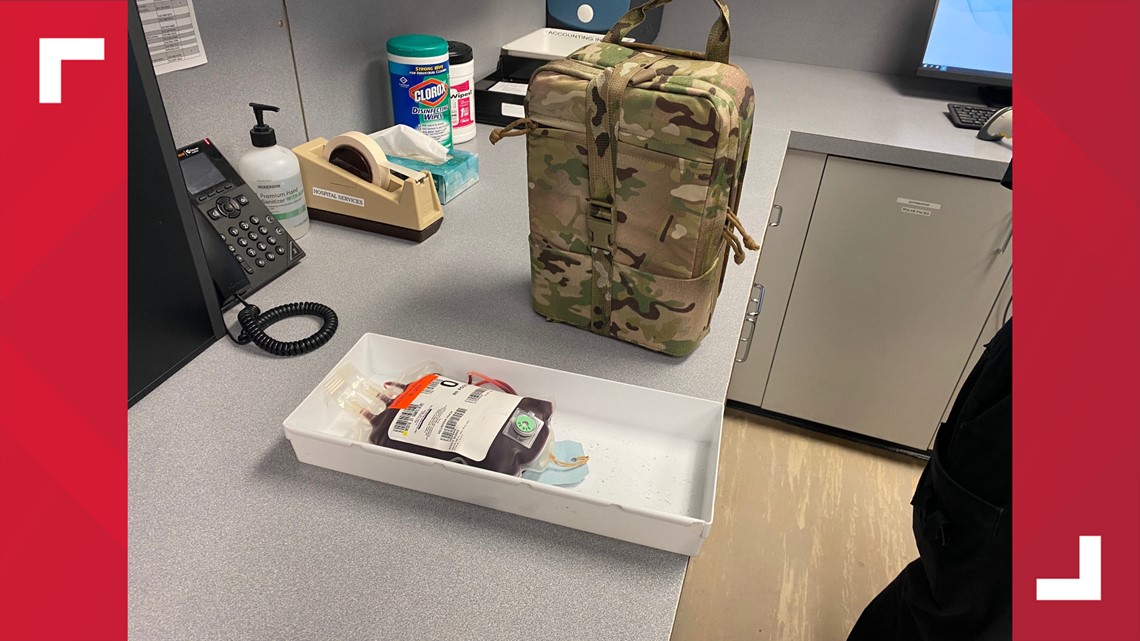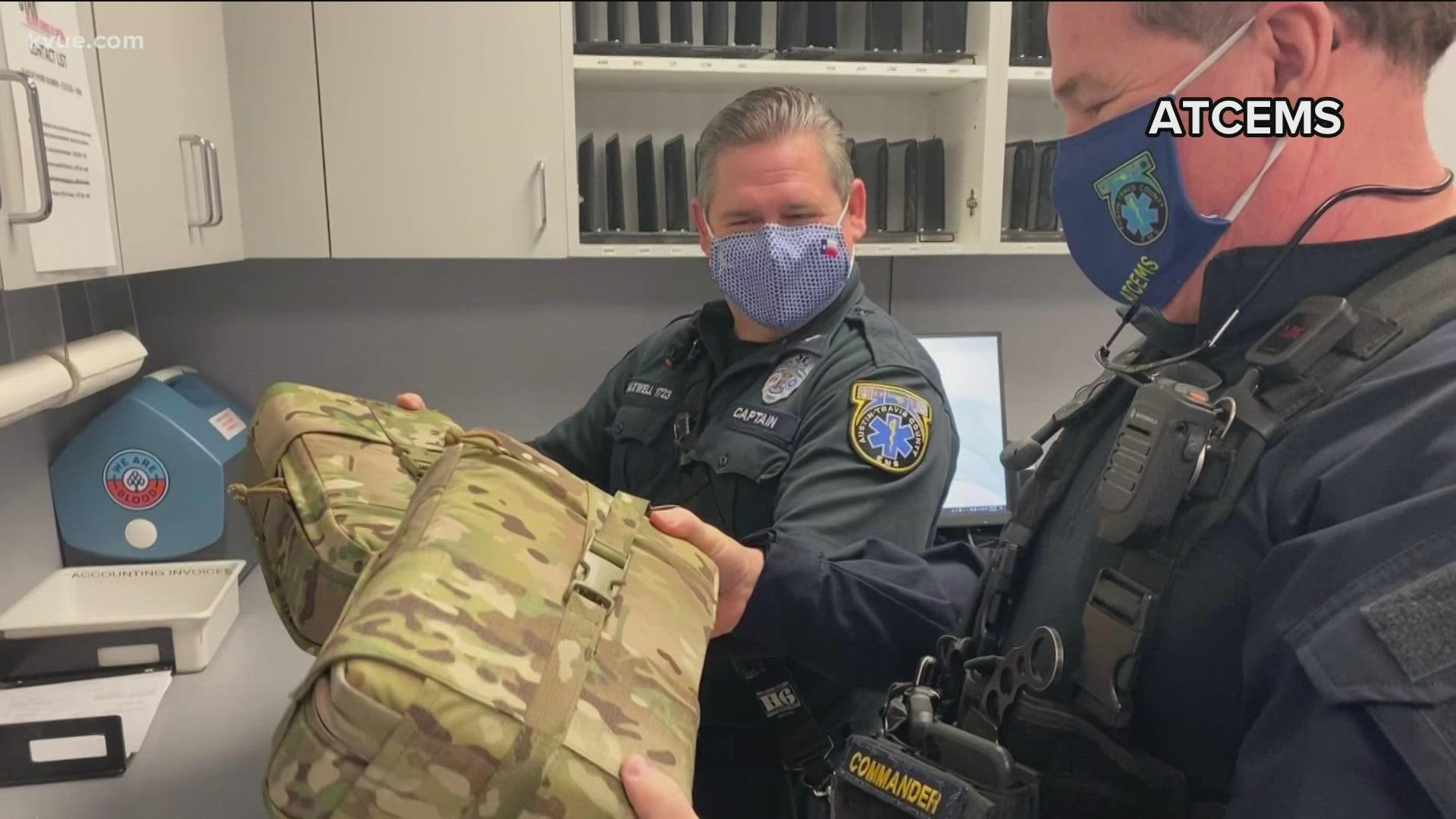AUSTIN, Texas — Austin-Travis County EMS (ATCEMS) is launching a new pilot program to carry whole blood on response vehicles.
According to ATCEMS, the agency, the City of Austin's Office of the Chief Medical Officer and We Are Blood have been collaborating for over a year to develop the program. To start the pilot, two ATCEMS response units will carry low titer O+ whole blood.
Type O blood is the universal donor blood type. "Low titer" means there is a minimal amount of antibodies in the blood, making it safe to transfuse to a patient of any blood type.
"Every second counts when you are dealing with a life-threatening hemorrhage, so carrying blood products with the ability to administer them in the field could very likely be the difference between life and death for these patients,” Deputy Medical Director Heidi Abraham said.


Abraham said prior to this, ATCEMS only had the ability to stop the bleeding and try to replace the lost blood volume with IV fluids, which she said is not the best option for hemorrhaging patients.
"By administering blood products at the patient’s side, closer to the time of injury, we’re giving these patients a much better chance of survival and recovery," Abraham said.
Captain Marco Villasenor said the only other cities in the state utilizing this are San Antonio and New Braunfels. He said the department has been working to put this program in place for two years.
We Are Blood, a nonprofit blood center and the sole provider of blood products in the region, has staff available to ATCEMS 24/7 to restock blood when it is used. If a unit of whole blood isn't used by ATCEMS within seven days, it will be returned to We Are Blood and redistributed to local trauma centers.
ATCEMS said the blood will be carried in specialized coolers, which will maintain a Federal Drug Administration-mandated temperature between 1 and 6 degrees Celsius. If the blood is not used within seven days, it's exchanged for a fresh unit.
ATCEMS said the future of its blood program is to make blood available as close to the time a patient is injured as possible. There is not a defined completion date for this pilot program, but ATCEMS will analyze the data and develop a strategy for equitable deployment.
PEOPLE ARE ALSO READING:

